Hi! My Name is Suhendra. I'm a Product Sales Marketing Developer on an online
blog site, and I'm very passionate and reaching out about my work. With years
of experience from 2015 -
as a marketing professional, I have acquired the skills and knowledge
necessary to make your project a success.
-
Name
SUHENDRA, S.M. -
Birthday
June 14, 1997 -
Email
suhendramanagement@gmail.com -
Phone
+62812 8933 0928 -
Adress
Indonesia -
Contry
Indonesia
Marketing Products Online Through Blog Sites
Developer of online product sales and marketing on a dynamic site based in Indonesia, ID
Combination of Skill & Experience
Education
-
Bachelor's degree in Management and Business
UNIVERSITAS PAMULANG2018 - 2022Business management is the process of managing existing resources in an organization, including people, money and materials, to achieve certain goals.
Suhendra Received a Bachelor's Degree in Management and Business from Pamulang University (2018 - 2022)
In 2022, Suhendra will officially obtain a Bachelor's degree in Management and Business from Pamulang University. Suhendra's academic journey began in 2018, when he decided to study management and business to broaden his insight and skills in the business world.
Future Prospects
After obtaining his Bachelor's degree, Suhendra has many plans and hopes for his future. He plans to continue his career in management and business with the hope of bringing positive change to the work environment and society at large. Apart from that, Suhendra is also considering continuing his education to a higher level to deepen his knowledge.
Suhendra's success in obtaining a Bachelor's degree in Management and Business from Pamulang University is proof of the hard work and dedication he demonstrated during his studies. Armed with the knowledge and experience he has gained, Suhendra is ready to face the challenges and opportunities that exist in the business world, and make a real contribution to the progress of industry and society. -
The final developer markets the product online via a blog site
Google Business and other sites2016 -The following are various marketing strategies that you can try for your business.
1. Paid Advertising.
2. Cause-Related Marketing.
3. Relationship Marketing.
4. Undercover Marketing.
5. Word of Mouth.
6. Internet Marketing.
7. Transactional Marketing.
8. Diversity Marketing. -
Blogger
SUHENDRA2015 -Journey to Becoming a Blogger Suhendra started his personal blog several years ago. At first, the blog only contained light writings about daily life, travel and personal thoughts. However, as time went by, Suhendra began to find his own unique voice and writing style. He writes about topics close to many people's hearts, such as motivation, self-development, and life experiences.
Experience
-
Sales and Marketing of Iron Products
The iron industry plays an important role in the global economy2017 -Sales and marketing of iron products requires a mature and adaptive strategy to market changes. By understanding the market, providing quality products, and using the right marketing strategies, companies can increase their competitiveness. Even though there are various challenges, opportunities for success in this industry remain wide open for those who are able to innovate and provide added value for customers.
-
Marketing Iron Products to all regions in Indonesia
Product Development and Product Marketing are broad disciplines2018 -Suhendra, a marketing professional, has proven himself to be a key figure in the sales and distribution of iron products in Indonesia. With a careful strategy and innovative approach, Suhendra succeeded in expanding the marketing reach of iron products to various regions in Indonesia.
Personal Skill
Digital Marketing Skills
-
Deep Understanding of SEO
-
Expertise in Content Marketing
-
Social Media Mastery
-
Skills in Email Marketing
-
Use of Data and Analytics
-
PPC (Pay-Per-Click) Strategy
My works that I did
-

Market Research and Competitor Analysis
Market Analysis, Competitor Study, and Market Segmentation
-

Marketing Strategy Development
Goal Setting, Marketing Channel Selection, and Content Planning
-

SEO Optimization and Content Marketing
On-Page SEO Optimization, Quality Content Creation, and Backlink Strategy
-

Email Marketing
Email List Segmentation, Email Campaign Design, and Email Automation
-

Social Media Management
Management of Social Media Accounts, Social Media Campaigns, and Interaction with Consumers
-

PPC (Pay-Per-Click) Campaigns
Google Ads, Social Media Advertising, and Advertising Budget Management
What people say about me
"Working with Suhendra has really changed the way we look at digital marketing. His creativity and innovation in managing our social media campaigns has succeeded in increasing engagement and product sales. In addition, he is always responsive and provides detailed reports, so we always know how the campaign is performing we highly recommend Suhendra for your digital marketing needs."
Maria Santoso
Direktur Pemasaran ABC Fashion"Suhendra is a true professional in the world of digital marketing. After working with Suhendra, we saw a significant increase in website traffic and conversions. The strategic and analytical approach he implemented was impressive. We are now one of the leading players in the construction industry thanks to Suhendra's efforts and expertise."
Andi Setiawan
CEO PT. Konstruksi Jaya"Digital marketing is key to the growth of our start-up, and Suhendra is the right choice. With expertise in SEO, social media and email marketing, he has succeeded in taking our brand to the next level. His data-driven and creative approach has really helped we understand and reach our audience better. I really appreciate Suhendra's dedication and professionalism."
Agus Pratama
Founder dan CEO Start-Up Tech Innovators-
What is a Blogger? By Suhendra
What is a Blogger?
By Suhendra
In the vast and ever-evolving digital landscape, blogging has emerged as a powerful platform for individuals and businesses alike to share information, express opinions, and connect with audiences worldwide. But what exactly is a blogger? This article delves into the role of a blogger, the evolution of blogging, and its impact on contemporary media and communication.
Understanding the Role of a Blogger
A blogger is an individual who creates and manages a blog, a type of website or online journal where content is regularly updated. Bloggers write about various topics, ranging from personal experiences and hobbies to industry-specific news and professional advice. They often include multimedia elements such as images, videos, and links to other online resources to enhance their posts.
The Evolution of Blogging
Blogging has undergone significant transformation since its inception in the late 1990s. Originally, blogs were simple online diaries where individuals documented their daily lives and thoughts. Over time, they have evolved into sophisticated platforms that cater to diverse audiences and cover a wide array of subjects.
1. Early Days:
The first blogs were personal journals, characterized by informal writing styles and a chronological format. Early bloggers were primarily hobbyists sharing their thoughts with a small circle of readers.
2. Rise of Professional Blogging:
As the internet expanded, blogging began to attract larger audiences. This led to the rise of professional bloggers who monetize their blogs through advertising, sponsored content, and affiliate marketing. Professional blogs often feature high-quality content and regular updates to attract and retain readers.
3. Blogging Platforms:
The development of user-friendly blogging platforms like Blogger, WordPress, and Tumblr made it easier for people to start their own blogs. These platforms provided tools for design, content management, and audience engagement, contributing to the rapid growth of the blogging community.
4. Integration with Social Media:
The integration of blogs with social media platforms has further amplified their reach. Bloggers use social media to promote their content, engage with readers, and build a following. This synergy has transformed blogs into powerful tools for personal branding and digital marketing.
The Impact of Blogging
Blogging has had a profound impact on various aspects of modern communication and media:
1. Democratization of Information:
Blogging has democratized the dissemination of information, allowing anyone with internet access to share their knowledge and opinions. This has led to a more diverse and inclusive media landscape.
2. Influence on Consumer Behavior:
Many consumers turn to blogs for product reviews, recommendations, and industry insights. Influential bloggers can sway consumer decisions and trends, making them valuable partners for brands and marketers.
3. Community Building:
Blogs often serve as hubs for communities of like-minded individuals. Readers can engage with bloggers through comments, social media interactions, and email newsletters, fostering a sense of belonging and shared interest.
4. Educational Resource:
Blogs have become valuable educational resources. Many bloggers share tutorials, how-to guides, and expert advice on topics ranging from technology and health to fashion and travel. This wealth of information is freely accessible to anyone seeking to learn.
Characteristics of Successful Bloggers
While anyone can start a blog, successful bloggers typically exhibit certain characteristics:
1. Passion for the Subject:
Successful bloggers are genuinely passionate about their chosen topics. This enthusiasm is reflected in their content, making it more engaging and authentic.
2. Consistency:
Regularly updating the blog with fresh content is crucial. Consistency helps build an audience and keeps readers coming back for more.
3. Strong Writing Skills:
Effective communication is key to blogging. Successful bloggers possess strong writing skills and the ability to convey their ideas clearly and compellingly.
4. Technical Savvy:
Understanding the technical aspects of blogging, such as SEO (Search Engine Optimization), web design, and analytics, can significantly enhance a blog’s visibility and performance.
5. Engagement:
Interacting with readers and responding to their comments and feedback fosters a loyal community. Successful bloggers value their audience and build relationships through active engagement.
The Future of Blogging
As technology continues to advance, blogging will likely evolve further. Emerging trends such as video blogging (vlogging), podcasts, and microblogging on platforms like Twitter and Instagram are reshaping how bloggers create and share content. Despite these changes, the core essence of blogging—sharing information and connecting with an audience—remains steadfast.
Conclusion
A blogger is much more than a writer; they are content creators, community builders, and influencers. Blogging has transformed from simple online diaries to dynamic platforms that impact consumer behavior, shape public opinion, and foster learning. As the digital world continues to grow, the role of bloggers will undoubtedly expand, cementing their place as vital contributors to modern media and communication.
By Suhendra
Get discon latest my product
Type Tiang Pagar BRC :
• Hot Dip Galvanis
• Elektro Pleating
• Tersedia Berbagai Ukuran
Type Pintu Pagar BRC :
• Hot Dip Galvanis
• Elektro Pleating
• Tersedia Berbagai Ukuran
Contact Me
-

Phone
+62812 8933 0928 -

Address
Indonesia



